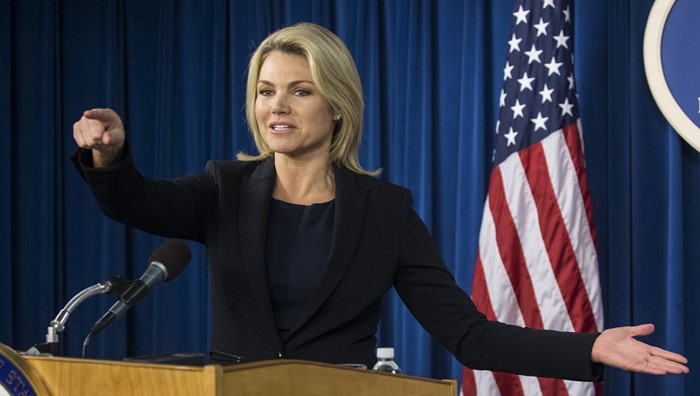The US State Department has denied a report in the American media claiming that the United States was considering removing Turkish-Islamic cleric Fethullah Gülen from the US in order to placate Turkey over the murder of Saudi journalist Jamal Khashoggi, saying the two cases were unrelated.
NBC News on Thursday reported, citing two senior US officials and two other people briefed on the requests, that Trump administration officials last month asked federal law enforcement agencies to examine legal ways of removing Gülen in an attempt to persuade Erdoğan to ease pressure on the Saudi government.
US State Department Spokesperson Heather Nauert said at a press briefing on Thursday that the White House “has not been involved in any discussions related to the extradition of Fethullah Gülen,” adding when questioned further that she was referring to discussions with the Turks and not to interagency communications. “We continue to evaluate the materials the Turkish government presents requesting his extradition” but said the issue is “wholly handled” by the Department of Justice and that any requests for information should be directed to them.
Nauert also said the Gülen extradition and the Khashoggi murder were unrelated issues.
In a similar development, a White House official told Reuters the NBC story was “not accurate,” but did not elaborate.
The NBC report said the secret effort to resolve one of the leading tensions in US-Turkey relations – Gülen’s residence in the US – provides a window into how President Donald Trump is trying to navigate hostility between two key allies after Saudi officials murdered Khashoggi on Oct. 2 at the kingdom’s consulate general in İstanbul.
Erdoğan has for years demanded the US send Gülen back to Turkey. The Turkish leader accuses the elderly cleric of being a terrorist who was behind a failed coup against Erdoğan’s government in 2016. After the coup attempt, Ankara made a formal request to the US for Gülen’s extradition.
Gülen, who has lived in self-imposed exile in the US for almost two decades, denies any involvement in the failed coup in Turkey in 2016. A one-time ally of Erdoğan, he has become an influential cleric with a wide network of followers. His movement includes a host of non-profit organizations, businesses and schools in the US.

